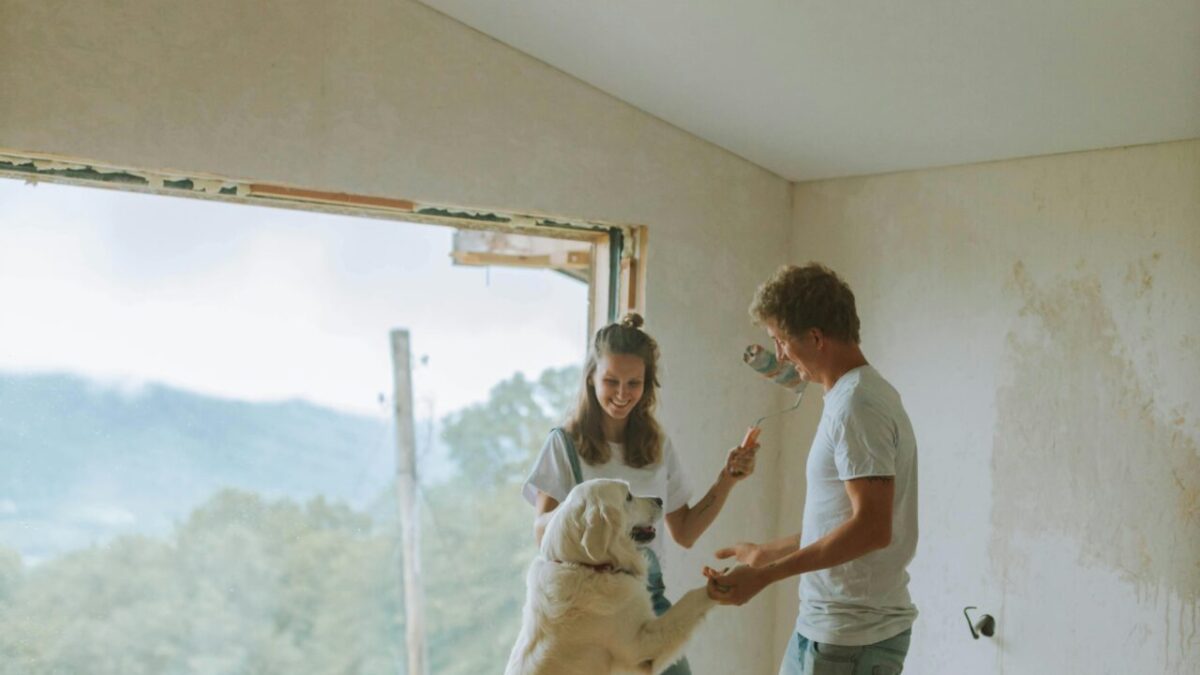We talk a lot about home improvement in terms of upgrades — new paint, better lighting, maybe a kitchen remodel that looks good on Instagram. But the real transformation isn’t in the aesthetics. It’s in the energy.
A well-tended home quietly changes the way you think, move, and even rest. It’s not just about what you see when you walk in the door — it’s about what you feel when you finally sit down. And that’s the part most people overlook.
You can’t calculate it with Zillow estimates or resale value. But the return on investment is very real. Here’s why improving your home is less about money — and more about mindset.
1. The Subtle Psychology of Space
Walk into a cluttered room and your body reacts before your brain does — tension in the shoulders, a faster heartbeat, maybe that small internal sigh that says I’ll deal with this later.
Now walk into a calm, organized space — one that smells clean, light filters in naturally, and everything has a place. Notice the difference? That’s not decor; that’s dopamine.
Your environment is a mirror for your nervous system. When your home feels chaotic, your brain stays in alert mode. When it feels intentional, your mind has permission to relax.
You don’t need a full renovation to feel that shift — just one zone of order. A drawer. A corner. A countertop that stays clear. Small signals tell your brain, we’re safe here.
2. Maintenance Is Emotional Hygiene
We’re taught to clean for guests, not for ourselves — which is wild when you think about it. You live in your home every day; why shouldn’t it reflect your peace, not just your presentation?
Fixing that leaky faucet or repainting the chipped trim isn’t about perfectionism. It’s self-respect. Every time you repair something that’s been quietly bothering you, you’re telling yourself, I’m worth a working space.
That’s emotional ROI: the confidence that comes from following through, from turning procrastination into pride.
3. A Home That Holds You, Not Just Your Stuff
A house becomes a home when it supports your rituals — not just your routines.
Maybe it’s creating a morning nook where sunlight hits your coffee mug just right. Maybe it’s organizing your kitchen so dinner doesn’t feel like a battlefield. Maybe it’s soundproofing your office so you can actually hear yourself think.
These aren’t luxuries; they’re investments in your energy. Because when your home is designed around your life — not around Pinterest trends — it gives back more than it costs.
4. The Clutter-Anxiety Loop
Here’s the trap: clutter makes you anxious, and anxiety makes you avoid cleaning. It’s a loop of mental exhaustion that convinces you the problem is time, when really, it’s attachment.
Every object you own is a micro-decision: keep, toss, fix, store. When you have too many, your brain short-circuits.
Start small and start emotional. Ask, Does this earn its place in my peace?
If the answer is no, let it go — without guilt. You don’t owe anything to what no longer supports you.
5. Your Environment Shapes Your Ambition
When your home feels heavy, your goals start shrinking. It’s hard to think expansively when your space whispers unfinished business.
That’s why successful people are often obsessive about their environments — not for vanity, but for clarity. The right surroundings make big thinking feel natural.
If you’ve been feeling stuck or uninspired, don’t start with a new vision board. Start by cleaning your workspace. Fix the light bulb that’s been flickering. The small repairs you make externally ripple inward.
Your Home Is a Living Reflection of You
A well-tended home doesn’t just look better — it feels better. It doesn’t demand perfection; it rewards attention.
The emotional ROI of home improvement isn’t found in the before-and-after photos — it’s found in the moments in between. The sigh of relief after organizing your closet. The satisfaction of a fresh coat of paint. The comfort of coming home to a space that quietly says, you’re doing okay.
Because when you invest in your environment, you’re not just improving your home — you’re improving the way you live inside it.
And that’s a return no appraisal can measure.
Unlock Full Article
Watch a quick video to get instant access.


Social Media